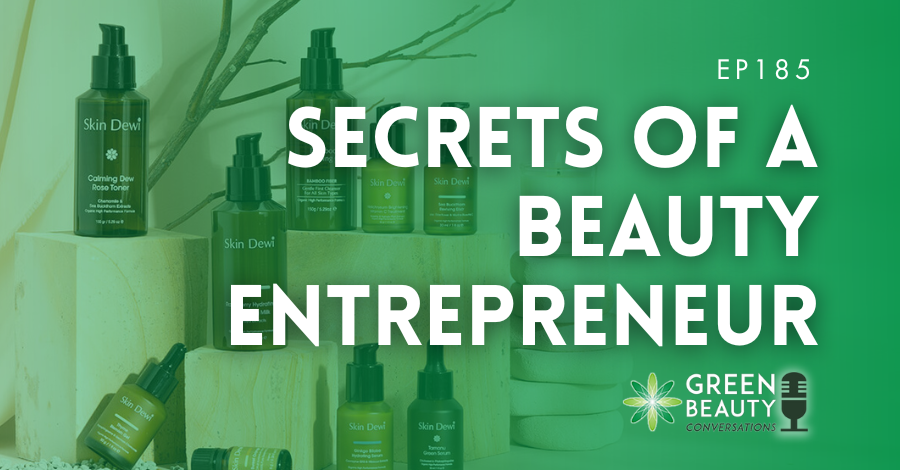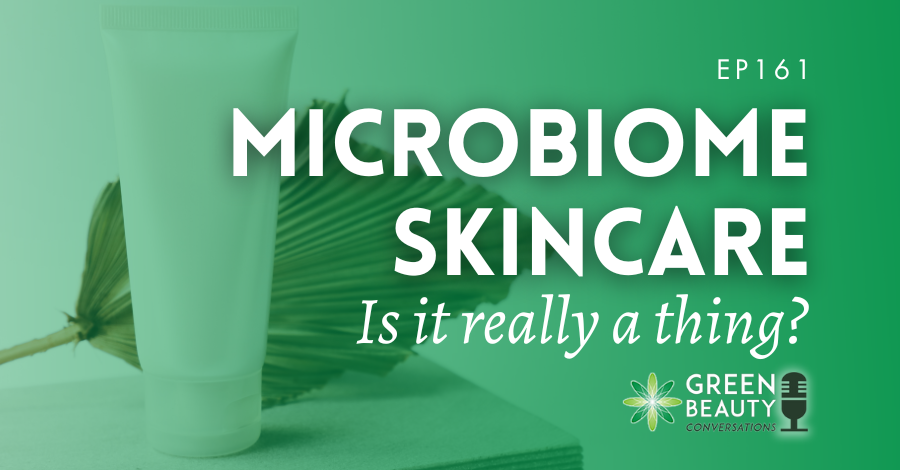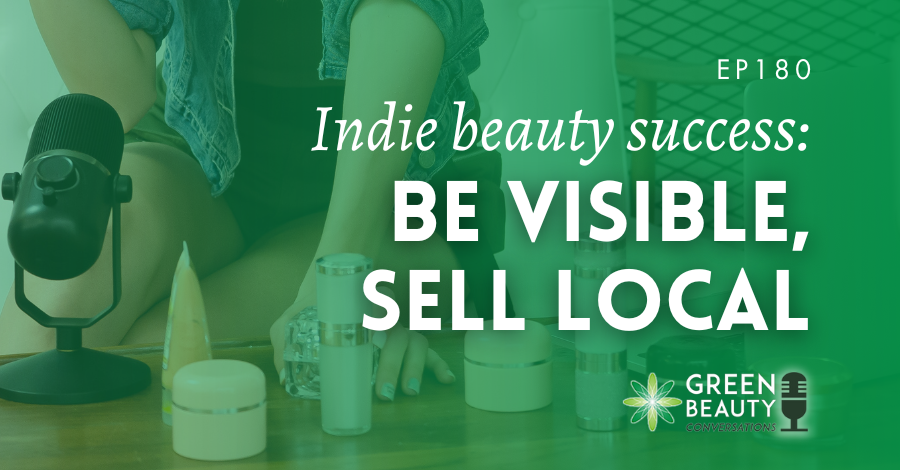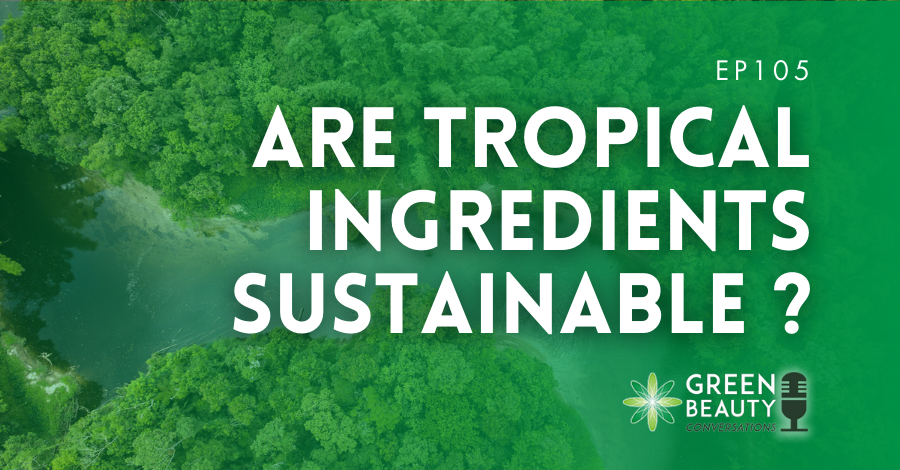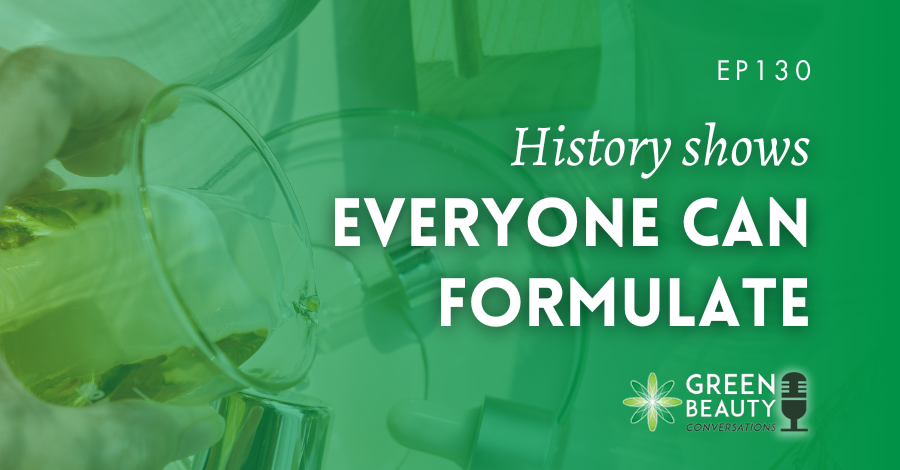Imagine a future in which bacteria is king and you might give a friend the skincare equivalent of a sourdough bread starter so they can grow their own moisturiser at home. Our podcast guest in this episode is on record as seeding this idea. We love the concept of cosmetic science being ever more in the hands of the home formulator, but is this concept just too futuristic?
In this episode, Formula Botanica CEO and podcast host Lorraine Dallmeier, a biologist and Chartered Environmentalist, digs deeper into the world of lab-produced ingredients to investigate the field of synthetic biology. Lorraine interviews Jake Wintermute, developer-evangelist at US-based synthetic biology research company Ginkgo Bioworks who describes SynBio as genetic engineering on steroids.
Listen in and use this episode as a primer to a new branch of science that could open up a revolution in cosmetic ingredients – or perhaps give us more to worry about?
In Green Beauty Conversations, we recently covered another new frontier in cosmetic science – biotech beauty. It proved a controversial topic with many in the Formula Botanica community feeling that using lab-grow plant molecules as ‘natural’ ingredients was a step too far. Before you make up your mind on this episode on SynBio, listen in carefully, read up and do your own research.
Synthetic biology has been described as genetic engineering on steroids. Does it have a place in creating cosmetic ingredients the @FormulaBotanica podcast asks? #synbio #cosmeticscience #cosmeticingredients Share on X
In this episode on synthetic biology, you will hear:
- The definition of synthetic biology (SynBio) and how it differs from biotech. SynBio is a next generation technology that programs cells using data science and the principles of engineering to understand the complexity of nature and ‘rewire’ DNA (genome) sequences using biology. It has the possibility to create everything from food to cosmetic ingredients and therapeutics.
- How SynBio is already being used in the creation of cosmetic ingredients and has particular application in the production of ingredients that in nature are of value to cosmetics but can be difficult to grow, harvest or extract or of low yield. SynBio could be said to have a role in supporting sustainability and in reducing costs in the cosmetics’ industry.
- Why synthetic biology could open up a cosmetics ingredient revolution by making available entirely new materials for both large and small-scale cosmetics’ firms.
- Synthetic biology has been shown to have some fascinating applications. Jake describes the Extinct Flower Project: ‘Recreating the Sublime’. Using SynBio, fragrance molecules of an extinct rose were created from its dried botanical matter that was residing in the archives of the Harvard University Herbarea.
Key takeouts include:
- The SynBio field has had a bad press and drawn criticism, but is now aiming to make itself more accessible, transparent and open to public debate. The costs involved in synthetic biology research in the past led in part to this culture of corporate secrecy.
- SynBio products may well be labelled as such in the future, but Jake, who takes pride in his research, voices concern that the label will be viewed as a warning, rather than as a declaration about product or ingredient production.
- SynBio uses yeast as the genome host for the ‘growing’ of new material. There is no reason, for example, why skin microbiome bacteria cannot be produced this way. This type of cosmetic ingredient is completely in the realm of SynBio as a living technology.
- Big mainstream cosmetic firms are still hesitant about using SynBio ingredients as are worried about the public perception of their brands. The adoption of SynBio is more likely to start with smaller, more innovative personal care brands.
Meet our guest: Synthetic Biology Developer-Evangelist Jake Wintermute
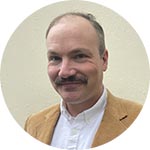
Before coming to Ginkgo, Jake spent 10 years as a teacher, researcher and group leader at the CRI in Paris, France, where his lab studied drug discovery for neglected diseases, citizen science and Synbio education. As Ginkgo’s Developer Evangelist, his mission is to grow the biotech ecosystem, to diversify the bioeconomy, and to provide education, documentation and support for developers bringing new projects to Ginkgo’s platform.
Find out more:
Ginkgo Bioworks
Grow by Ginkgo – a magazine about synthetic biology.
Thank you for joining us for this episode of the Formula Botanica Green Beauty Conversations podcast. If you enjoyed listening, please share, subscribe and review this episode on Apple Podcasts, Spotify or Youtube so that more people can enjoy the show. Don’t forget to follow and connect with us on Facebook and Instagram.
FREE TRAINING
Learn how to become an
Organic Skincare Formulator
FREE TRAINING
How to become an
Organic Skincare Entrepreneur
FREE TRAINING
How to become an
Organic Skincare Entrepreneur
Leave us a comment
Lorraine Dallmeier is a Biologist, Chartered Environmentalist and the CEO of Formula Botanica, the award-winning online organic cosmetic science school. Read more about Lorraine and the Formula Botanica Team.



